All official European Union website addresses are in the europa.eu domain.
See all EU institutions and bodiesThe centres function as key reference points for citizens, schools, local authorities, and enterprises, offering education and resources on sustainable development practices essential for adapting to the changing climate.
Key Learnings
About the Region
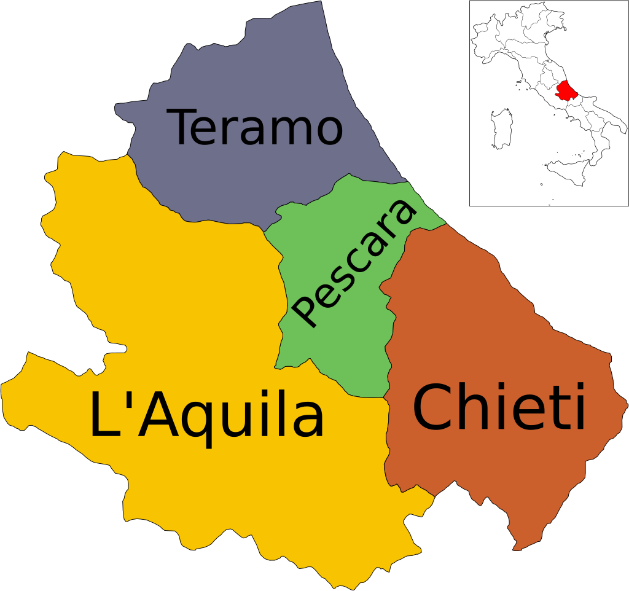
Climate Threats
Abruzzo faces significant climate threats, including floods, landslides, and extreme weather highlighting the need for resilient infrastructure. Heavy rainfall can cause flooding, while mountainous regions are prone to landslides, especially after storms. In winter, heavy snowfall and avalanches disrupt daily life. Summer heatwaves and droughts impact water supplies and agriculture. These hazards emphasise the need for robust disaster preparedness and sustainable land management to protect Abruzzo's population and environment.
Environmental Education in the Abruzzo Region
[By] introducing Environmental Education Centres […] in the Abruzzo Region, I [must] emphasise how each one of them represents an opportunity for sustainable enrichment in our territory. The invitation is […] to engage with the Environmental Education Centres in the area and addresses anyone who recognises sustainable development as an effective strategy for environmental action.
Daniela Stati, The Regional Councillor for Civil Protection and Environment of the Abruzzo Region
Environmental Education Centres to achieve local climate change adaptation
Each Environmental Education Centre operates in diverse geographical areas – hilly, mountain, coastal, and urban – allowing them to implement localised projects like educational courses and training sessions. Funded by regional, EU, and local contributions, they focus on sustainability and climate adaptation. These centres play a vital role in participatory processes, using unique methodologies for sustainability themes. A Regional Monitoring System oversees their activities to ensure relevance and continuous improvement, fostering a network of various social actors in the region.
The Environmental Education Centres are part of INFEAbruzzo, the regional system for environmental information, training, and education, and are legally of regional interest. Collectively, they form the network of Environmental Education Centres of the Abruzzo Region.
The Environmental Education Centre ECOTUR as an example in the Abruzzo region
The Environmental Education Centre Ecotur is located in the centre of Pescasseroli, the historic capital of Abruzzo, Lazio, and Molise National Park, where it operates. It has a reception hall, library, newspaper library, video library, and media library open to users and offers educational workshops, exhibition spaces, and multimedia means for reproducing sounds and images.
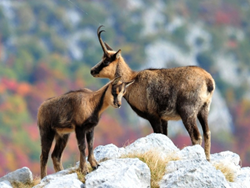
The state recognised the National Park in January 1923 after its establishment in September 1922. The National Park extends over the three regions of Abruzzo, Lazio, and Molise and covers an area of about 50,000 hectares, surrounded by another 60,000 hectares of buffer zone, which aims to protect animals that often roam beyond the National Park’s core boundaries.
About 25 villages distributed among the three regions fall within the Park's territory. The Park completely immerses five villages (Pescasseroli, Opi, Villetta Barrea, Civitella Alfedena and Barrea). The Abruzzo, Lazio and Molise National Park is one of the richest wildlife mountain areas in the Apennines. It is renowned for its rich biodiversity, housing over 60 mammal species, 300 bird species, and 40 reptile species, along with numerous insects and invertebrates. Notable wildlife includes native and endemic species like the Marsican Brown Bear and the Abruzzo Chamois, which are significant to the region's ecological heritage.
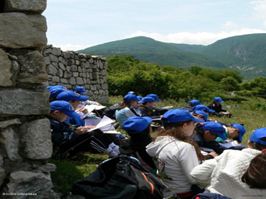
Over the years, the Environmental Education Centre Ecotur proposed several environmental education projects for local and national schools, involving dozens of institutions of all levels (early childhood, primary school, and secondary school) and thousands of students. It has promoted educational projects involving a series of in-classroom and outdoor meetings and residential projects to identify effective and stimulating training and education. The educational pathways focused on nature experiences, perception of nature and discovery activities. “Playing while learning” fostered the student learning experience and social, cognitive and emotional capacities. The efforts focused on stimulating the students' curiosity and facilitating the understanding of nature’s complexity.
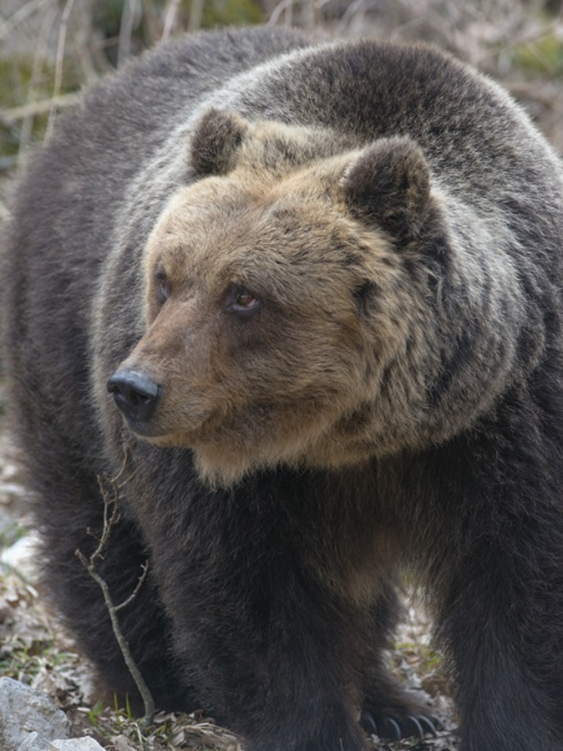
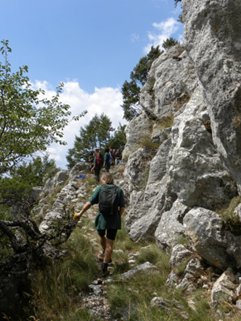
The Centre Ecotur offers specific tourism programmes to promote greater interest in environmental issues, such as educational trips or mountain excursions. It also conducts environmental awareness campaigns like "Save the Marsican Bear," aimed at protecting the Marsican brown bear. This initiative has successfully reduced conflicts between predators and farmers in the park, facilitating continued pasturing that aids in climate change adaptation. Additionally, the initiative has provided low voltage electrified fencing donations to prevent predation on domestic livestock.
Summary
Further Information
- https://www.ecotur.org/it/cea_ecotur.xhtml?_gl=1*tcbsiz*_up*MQ..*_ga*MTIzMzUyMTU3NC4xNzIwNTExODgw*_ga_7FF8DDREE9*MTcyMDUxMTg3OC4xLjAuMTcyMDUxMTg3OC4wLjAuMA..
- https://www.regione.abruzzo.it/xInfea/docs/CEAInteresseReg/CEAAquila.pdf
- https://fedarene.org/best-practice/abruzzo-region-network-of-education-centre-for-environment-a-reference-for-education/
- OpuscoloCEA.pdf (regione.abruzzo.it)
- https://news.un.org/en/story/2021/09/1098662
- https://www.parcoabruzzo.it/index.php
Contact
Keywords
Climate Impacts
Adaptation Sectors
Key Community Systems
Countries
Funding Programme
Disclaimer
The contents and links to third-party items on this Mission webpage are developed by the MIP4Adapt team led by Ricardo, under contract CINEA/2022/OP/0013/SI2.884597 funded by the European Union and do not necessarily reflect those of the European Union, CINEA, or those of the European Environment Agency (EEA) as host of the Climate-ADAPT Platform. Neither the European Union nor CINEA nor the EEA accepts responsibility or liability arising out of or in connection with the information on these pages.
Language preference detected
Do you want to see the page translated into ?


